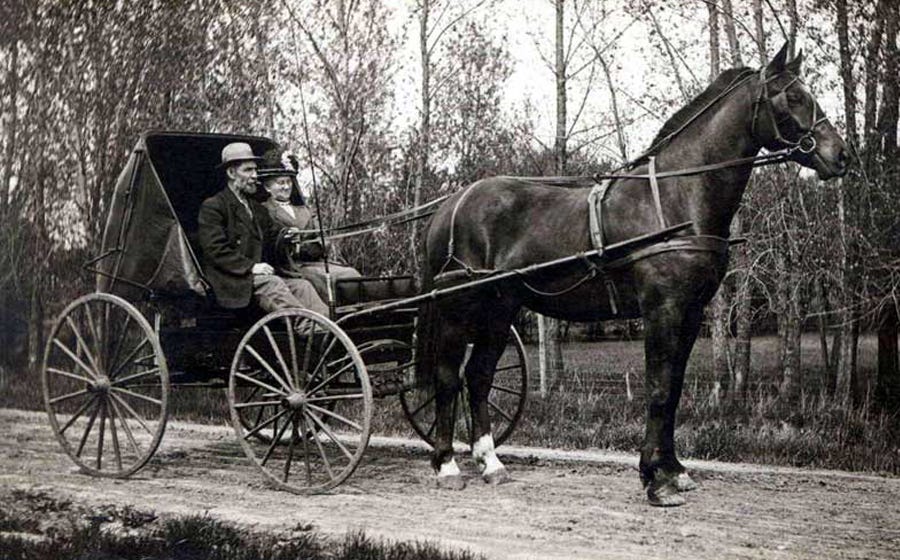That time Henry Ford had two front-page horse crashes in one year
If necessity is the mother of invention, the events of 1883 left Henry Ford plenty of incentive to put the world on wheels.
1883 was a bad year for Henry Ford. Even if two horse crashes in one year were common for that era in Detroit, having both of them make the front page of the biggest paper in town still sucks.
How big a role did the two incidents play in Ford’s motivation to put the world on wheels? We’ll never know. But I’m guessing it’s not a coincidence that the man who freed man from the horse had come to see the unreliability of the horse first-hand, and almost lost his life to it.
May 1883: That time Henry Ford was hit by a tornado, and reported to be dead
Back then, he was a young man of 19 and 20 years old, still decades away from creating a race car that traveled a-mile-a-minute. Back then, he was still trying to be a good son, and live the agrarian life preferred by father William.
Long before he was employed by Thomas Edison, and a half-decade before he married Clara Bryant, Henry Ford was just another guy pulling shifts and doing what he had to do to for money. One day he was hauling lumber, the next day he was hauling shit.
On Thursday, May 10, 1883, a tornado hit Detroit’s west side, at Grand River. The Detroit News — then called The Evening News — was the afternoon paper, and its preliminary report offered that a man, name unknown, had been “was thrown from his wagon…in a fatal manner.”
That unknown man was Henry Ford.
The Detroit Free Press, the morning paper, reported Ford’s name the next day. The Freep described him as “a young farmer who lives in Dearborn Township.”
“When Ford was picked up, it was thought that he was dead,” the Freep reported, perhaps a jab at its competitor.
However, “an examination showed that no bones were broken.”
Doctors feared internal injuries. But it could’ve been worse — it could’ve been what The Evening News reported: The End. Instead, Ford’s end wouldn’t come until 60+ years later.
“The whirlwind caught Ford’s wagon and lifting it several feet, with a whirl, above the ground, overturned it and fell with the unfortunate young man underneath,” the Freep reported. An ambulance transported Ford the nine miles back to Dearborn, where Ford recuperated at home.
The tornado, and Ford’s role in it, were front-page news at The News and Freep both.

Nov. 1883: That time Henry Ford was hauling shit, and his horse wigged out
Six months later, Ford was back on the front page of the Freep, again for a horse crash.
If the May incident could be viewed as an Act of God, something that would’ve happened to anyone at that stretch of Grand River in that sliver of time, the November crash was the fault of fickle animals.
On Nov. 20, 1883, the Freep’s A1 “Saying and Doings” column reported that Ford, riding a horse-drawn manure cart, was “seriously injured…by the animal running away and capsizing the wagon.”
Only a fence kept Ford’s horse from running off to parts unknown.
The Henry Ford who was hauling lumber and manure is the Henry Ford trying to live an agrarian life, living out Dad’s vision of the world.
If farm life had been more comfortable, perhaps Ford wouldn’t have felt a need to build the automobile. To become the businessman and inventor he was destined to be, Ford had to leave behind the dreams of his father and the comfortable employ of Mr. Thomas Edison.
Also on the front-page that day was a profile of millionaire lumber man David Ward, who was an enigmatic presence.
To illustrate Ward’s simplicity, Freep noted: “He wears no jewelry, and does not even carry a watch. He takes no practical interest in yachts, fast horses or costly paintings.”
When Henry Ford was a young man, fast horses were a luxury item, and horse-crashes were life-threatening events. In just 20 years, the entire world changed, and it was Ford who changed it.




